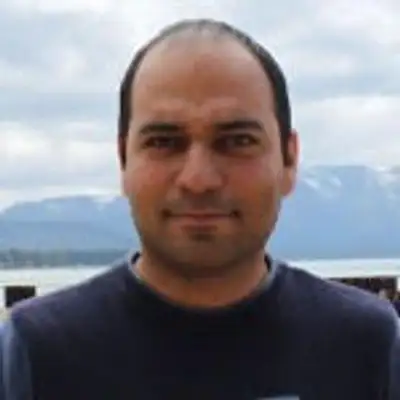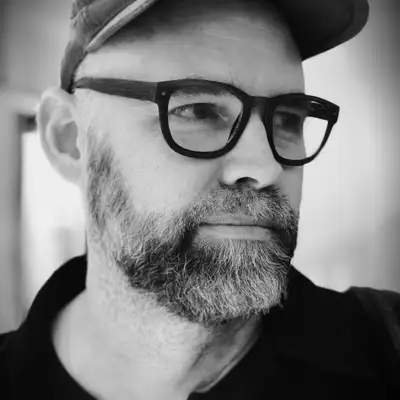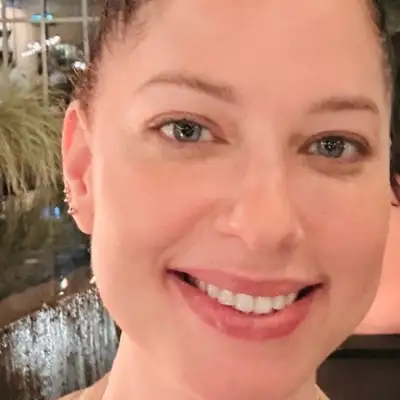
Quantum Materials and Nano Fabrication with Javad Shabani
Quantum Materials and Nano-Fabrication with Javad Shabani
Guest: Dr. Javad Shabani is Professor of Physics at NYU, where he directs both the Center for Quantum Information Physics and the NYU Quantum Institute. He received his PhD from Princeton University in 2011, followed by postdoctoral research at Harvard and UC Santa Barbara in collaboration with Microsoft Research. His research focuses on novel states of matter at superconductor-semiconductor interfaces, mesoscopic physics in low-dimensional systems, and quantum device development. He is an expert in molecular beam epitaxy growth of hybrid quantum materials and has made pioneering contributions to understanding fractional quantum Hall states and topological superconductivity.
Episode Overview
Professor Javad Shabani shares his journey from electrical engineering to the frontiers of quantum materials research, discussing his pioneering work on semiconductor-superconductor hybrid systems, topological qubits, and the development of scalable quantum device fabrication techniques. The conversation explores his current work at NYU, including breakthrough research on germanium-based Josephson junctions and the launch of the NYU Quantum Institute.
Key Topics Discussed
Early Career and Quantum Journey
Javad describes his unconventional path into quantum physics, beginning with a double major in electrical engineering and physics at Sharif University of Technology after discovering John Preskill's open quantum information textbook. His graduate work at Princeton focused on the quantum Hall effect, particularly investigating the enigmatic five-halves fractional quantum Hall state and its potential connection to non-abelian anyons.
From Spin Qubits to Topological Quantum Computing
During his PhD, Javad worked with Jason Petta and Mansur Shayegan on early spin qubit experiments, experiencing firsthand the challenge of controlling single quantum dots. His postdoctoral work at Harvard with Charlie Marcus focused on scaling from one to two qubits, revealing the immense complexity of nanofabrication and materials science required for quantum control. This experience led him to topological superconductivity at UC Santa Barbara, where he collaborated with Microsoft Research on semiconductor-superconductor heterostructures.
Planar Josephson Junctions and Material Innovation
At NYU, Javad's group developed planar two-dimensional Josephson junctions using indium arsenide semiconductors with aluminum superconductors, moving away from one-dimensional nanowires toward more scalable fabrication approaches. In 2018-2019, his team published groundbreaking results in Physical Review Letters showing signatures of topological phase transitions in these hybrid systems.
Gatemon Qubits and Hybrid Systems
The conversation explores Javad's recent work on gatemon qubits—gate-tunable superconducting transmon qubits that leverage semiconductor properties for fast switching in the nanosecond regime. While indium arsenide's piezoelectric properties may limit qubit coherence, the material shows promise as a fast coupler between qubits. This research, published in Physical Review X, represents a convergence of superconducting circuit techniques with semiconductor physics.
Breakthrough in Germanium-Based Devices
Javad reveals exciting forthcoming research accepted in Nature Nanotechnology on creating vertical Josephson junctions entirely from germanium. By doping germanium with gallium to make it superconducting, then alternating with undoped semiconducting germanium, his team has achieved wafer-scale fabrication of three-layer superconductor-semiconductor-superconductor junctions. This approach enables placing potentially 20 million junctions on a single wafer, opening pathways toward CMOS-compatible quantum device manufacturing.
NYU Quantum Institute and Regional Ecosystem
The episode discusses the launch of the NYU Quantum Institute under Javad's leadership, designed to coordinate quantum research across physics, engineering, chemistry, mathematics, and computer science. The Institute aims to connect fundamental research with application-focused partners in finance, insurance, healthcare, and communications throughout New York City. Javad describes NYU's quantum networking project with five nodes across Manhattan and Brooklyn, leveraging NYU's distributed campus fiber infrastructure for short-distance quantum communication.
Academic Collaboration and the New York Quantum Ecosystem
Javad explains how NYU collaborates with Columbia, Princeton, Yale, Cornell, RPI, Stevens Institute, and City College to build a Northeast quantum corridor. The annual New York Quantum Summit (now in its fourth year) brings together academics, government labs including AFRL and Brookhaven, consulting firms, and industry partners. This regional approach complements established hubs like the Chicago Quantum Exchange while addressing New York's unique strengths in finance and dense urban infrastructure.
Materials Science Challenges and Interfaces
The conversation delves into fundamental materials science puzzles, particularly the asymmetric nature of material interfaces. Javad explains how material A may grow well on material B, but B cannot grow on A due to polar interface incompatibilities—a critical challenge for vertical device fabrication. He draws parallels to aluminum oxide Josephson junctions, where the bottom interface is crystalline but the top interface grows on amorphous oxide, potentially contributing to two-level system noise.
Industry Integration and Practical Applications
Javad discusses NYU's connections to chip manufacturing through the CHIPS Act, linking academic research with 200-300mm wafer-scale operations at NY Creates. His group also participates in the Co-design Center for Quantum Advantage (C2QA) based at Brookhaven National Laboratory.
Notable Quotes
"Behind every great experimentalist, there is a greater theorist."
"A lot of these kind of application things, the end users are basically in big cities, including New York...people who care at finance financial institutions, people like insurance, medical for sensing and communication."
"You don't wanna spend time on doing the exact same thing...but I do feel we need to be more and bigger."
Creators and Guests

Guest
Javad Shabani
Professor of Physics; Director of the Center of Quantum Information Physics; Director of NYU Quantum Institute; Affiliated Faculty, NYU-KAIST Global Innovation and Research Institute

